MercoPress. South Atlantic News Agency
Tag: Latam
-
Monday, May 5th 2014 - 06:24 UTC
“Least difficult phase of economic growth is now over”, IMF top official tells Latam
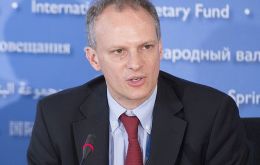
IMF Director for the Western Hemisphere Department Alejandro Werner has once again called on Latin America to embark upon economic reforms, claiming that the “least difficult” phase of economic growth is now over.
-
Wednesday, April 30th 2014 - 09:14 UTC
Latam and Caribbean forecasted to expand 2.7% on average this year

Latin American and Caribbean countries are estimated to grow an average 2.7% in 2014 as the region's main economies have limited dynamism according to ECLAC's Updated Economic Review of Latam and the Caribbean 2013, released on Tuesday.
-
Friday, April 4th 2014 - 07:53 UTC
Latam leaders discuss improving education and skills to help diversity economy

Political, business and academic leaders gathered for the ninth annual World Economic Forum in Latin America in Panama set out strategies for the region to move beyond dependence on commodity exports and face the challenges of a rapidly changing global economy.
-
Friday, March 28th 2014 - 08:21 UTC
Latam divided on UN Crimea vote; Mercosur, except for Venezuela abstains

The UN resolution condemning the annexation of Crimea by Russia which was voted on Thursday at the general assembly showed Latin America (and Mercosur) divided on the issue. The non binding resolution sponsored by Costa Rica and the western powers received 100 votes, with 11 against and 58 abstentions.
-
Tuesday, January 28th 2014 - 17:57 UTC
What can the U.S. learn from Latin America’s declining inequality?
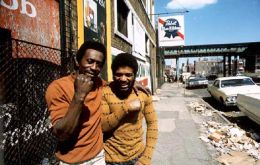
By Heraldo Muñoz (*) - President Obama recently declared that inequality is “the defining challenge of our age.” When inequality is becoming a growing debate in the United States, what lessons can be drawn from Latin America, which — although still highly unequal — is the only region that managed to reduce income inequality in the last decade?
-
Wednesday, January 22nd 2014 - 11:19 UTC
Malvinas: Timerman happy because region summit will state that the Islands are Argentine
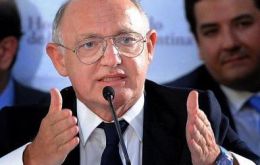
Argentina is looking forward to the coming Celac summit because there will be an overwhelming acknowledgement that the Malvinas Islands are Argentine and the need for bilateral negotiations, as well as a unanimous rejection of the US blockade on Cuba, said Foreign minister Hector Timerman.
-
Tuesday, January 21st 2014 - 14:55 UTC
Argentina and Brazil with the largest and fastest growing fiscal pressure in Latam

Argentina’s tax revenue was at last count the largest and fastest growing in the region, the UN Economic Commission for Latin America and the Caribbean (ECLAC) revealed on Monday. At 37.3%, the latest tax revenue-to-GDP data put Argentina ahead of Brazil, with tax revenue worth 36.3% of its GDP in 2012 — and a few percentage points above the average for OECD countries at 34.6%.
-
Monday, January 20th 2014 - 22:07 UTC
Cuba proposes declaring Latam and the Caribbean a Zone of Peace
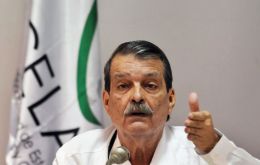
Cuba that is hosting a major regional summit at the end of the month will propose that Latin America and the Caribbean be declared a Zone of Peace, according to reports from the Cuban Foreign ministry.
-
Wednesday, January 8th 2014 - 05:34 UTC
When talking fuel, Mexico and Argentina the better off; Colombia and Uruguay bottom of the list

Taking as reference the ratio between the average salary and the price of gasoline in six Latam countries, Mexican and Argentine consumers are the better off when it comes to filling up the tank while for Uruguay and Colombia the ratio is the least favorable.
-
Friday, December 20th 2013 - 06:28 UTC
US planning a new trade agreement with Latam, but through NAFTA
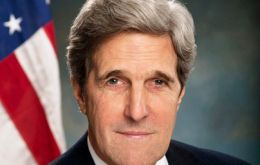
The President Barack Obama administration is “exploring” a regional trade plan for the Americas that would be the most ambitious hemispheric initiative in years, but contrary to the failed experience of George Bush's FTAA (Free Trade Area of the Americas), this time it would be instrumented through Nafta (North American Free Trade Agreement) partners Mexico and Canada, according to a Miami Herald interview of Andres Oppenheimer with Secretary of State John Kerry.
